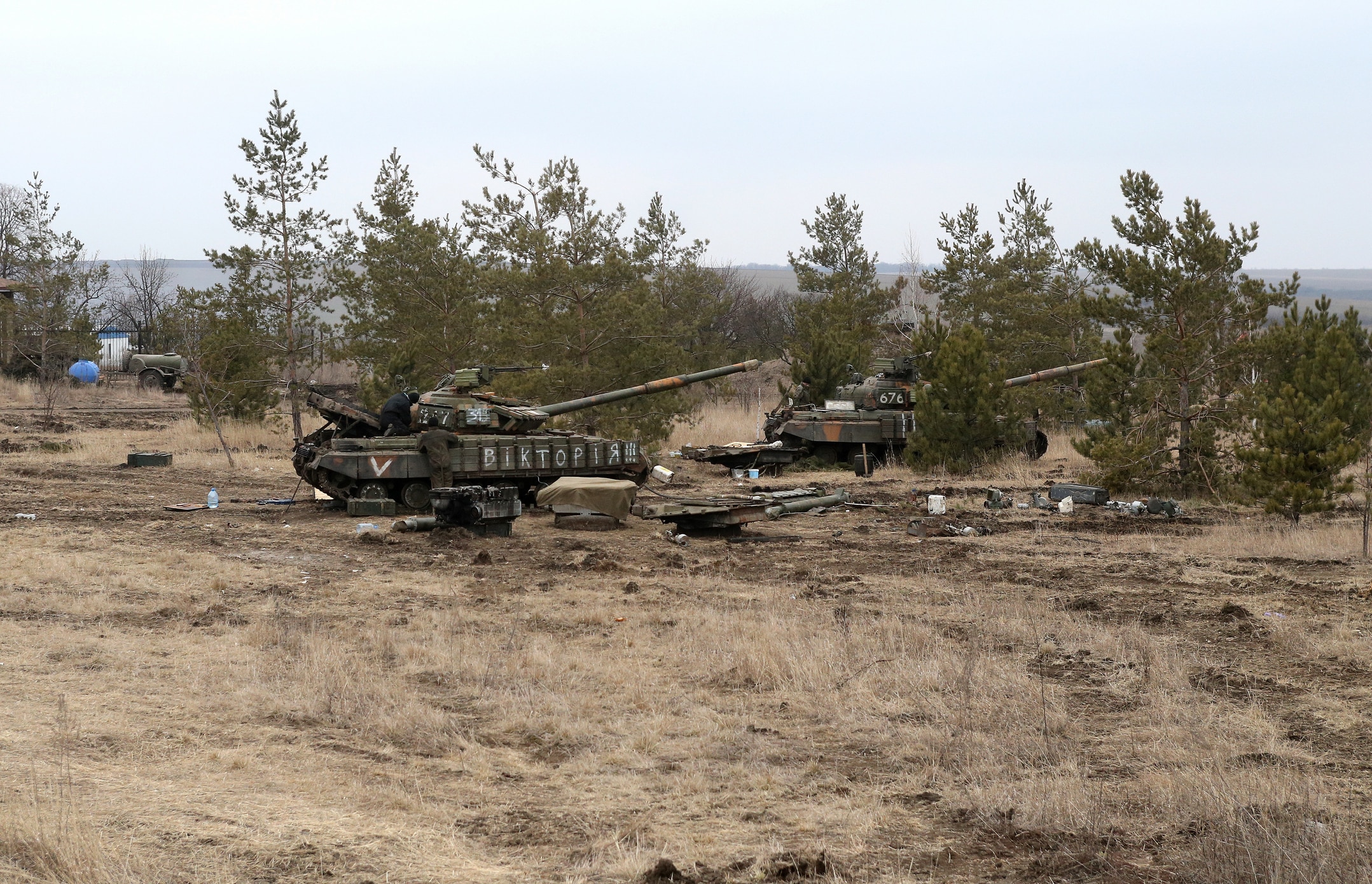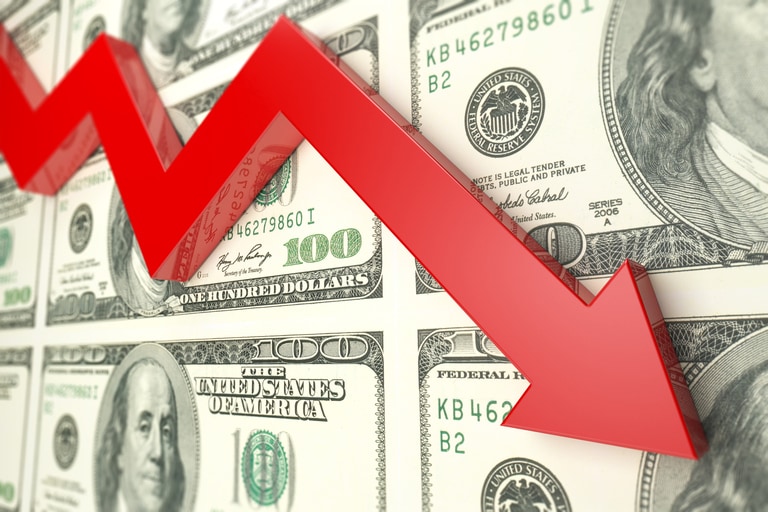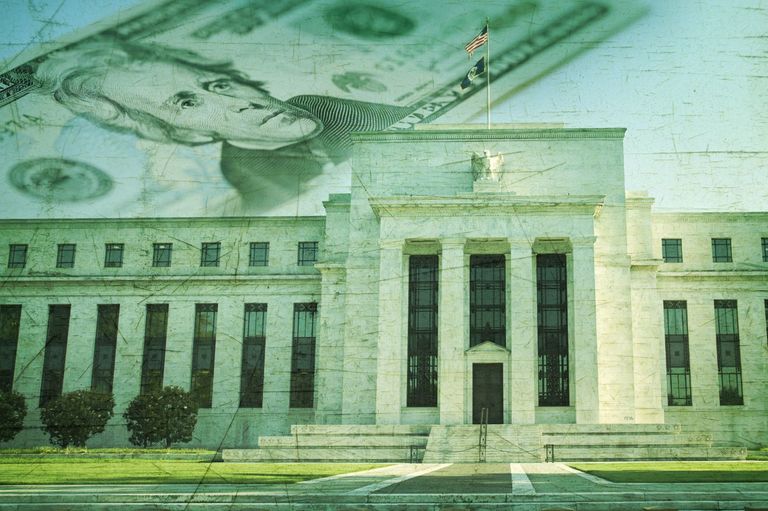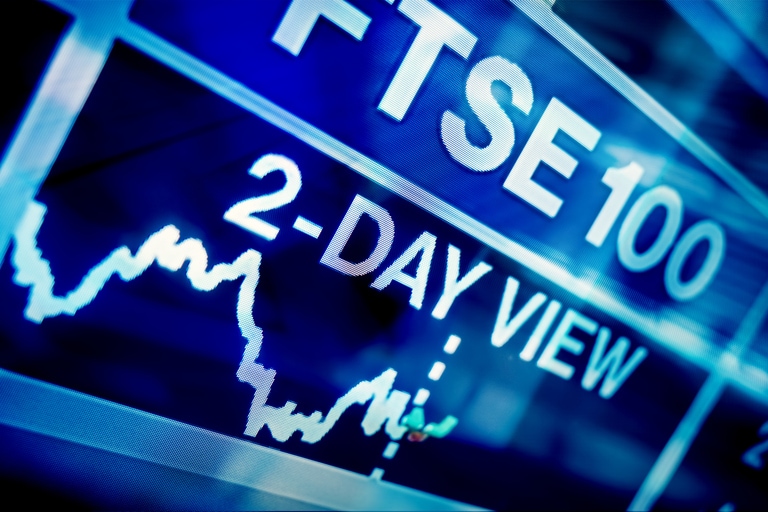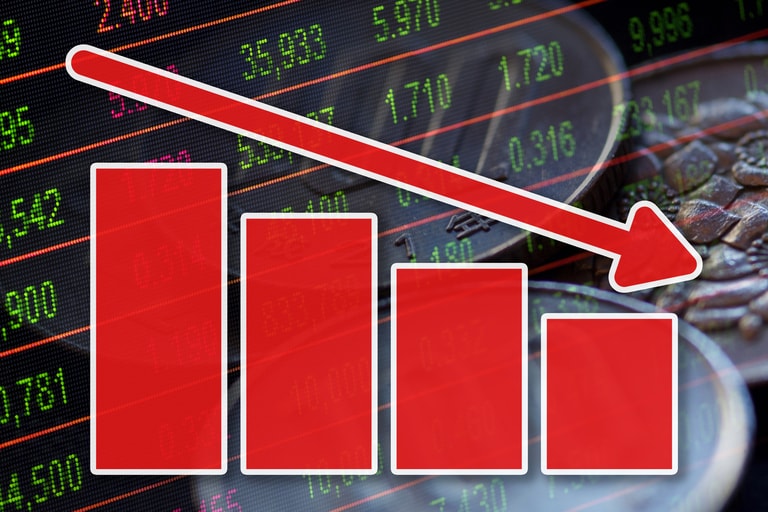In what has been a sobering and dark day for Europe, the day we all feared arrived today as the Russian military rolled into Ukraine in the early hours of this morning, sending equity markets sharply lower, as investors struggled to project forward what is likely to come next.
Europe
The FTSE100 has fallen sharply to its lowest level since 20th December, and the DAX to a one year low, as concerns about the economic consequences of today’s events prompt a wholesale flight to safety, as money flows into the US dollar, gold, and government bond markets.
While Brent crude prices have risen as high as $105, European natural gas prices have surged by over 40% today, as concerns about supply disruptions rise.
It seems highly unlikely that Russian forces will stop until the whole of Ukraine has been annexed, as Europe looks at its worst security and humanitarian crisis since the second World War, as the dark cloud of war hangs over Europe.
While the EU and the US have said they will hit back with further sanctions, it is highly unlikely that this will change Putin’s calculus, given that the nuclear option of shutting Russia out of energy markets and Swift isn’t yet on the table, due to concerns over the collateral damage it might do to Western economies, with the EU seemingly opposed to such a move.
While this might be a justifiable concern it doesn’t really compare to what might happen if Russia carries on and threatens the borders of the Baltic States, or Poland, who are NATO allies, who will no doubt require aid to deal with an unfolding humanitarian crisis, as Ukrainian civilians flee westwards.
The biggest fallers on the FTSE100 have been the Russian miners, Polymetal and Evraz, down over 30%.
Rolls-Royce shares have also plunged after announcing that CEO Warren East was stepping down at the end of this year, as it unveiled full year results, which showed that Omicron had impacted the business in Q4, although it managed to swing back to a small profit of £10m.
European banks have seen big losses over concerns over their durability to the economic shocks that today’s events might trigger, as well as their exposure to Russian assets, where sanctions might get targeted. Steep losses are being seen in the likes of Deutsche Bank and Commerzbank, as well as French and Italian banks, in the form of Société Générale and UniCredit.
Lloyds Banking Group has also fallen back sharply after it missed expectations on Q4 profits, although it did pay a total dividend of 2p per share, as well as announcing a £2bn share buyback. Concerns about the outlook appear to be weighing on the shares today.
Airlines are lower with Wizz Air in particular getting hit hard due to its exposure to eastern Europe, along with Ryanair, easyJet and IAG.
Defence company BAE Systems is higher, although it also reported a 13% rise in profits to £2.2bn for 2021, while updating its sales forecasts for 2022 to between 2% to 4%. Given recent events these upgrades could well be on the conservative side if the increase in hostilities seen today in Ukraine spills over to the rest of Europe.
Mexican Gold and silver miner Fresnillo is also higher on the back of the rise in precious metals prices.
US
US markets have taken their cues plunging on the open with the Nasdaq 100 dropping into a bear market and a 9-month low, as concerns over surging inflation bear down on the most expensive parts of the US stock market, although we are starting to rebound from the lows of the day as today’s market moves become more geographical.
Any thought that this current bout of inflation could be in any way described as transitory is now for the birds. It is a word that central bankers will no longer be able to hide behind as the world confronts what could be a significant stagflation shock in the coming months.
Some of today’s biggest fallers have been in the likes of travel and leisure with airlines lower, led by United Airlines, Carnival Corp and Norwegian Cruise Lines.
Tesla is also sharply lower on the back of the sharp rise we’re seeing in industrial metals prices which are likely to hammer its margins, at a time when its high valuation is coming under increasing scrutiny. The shares are now down over 35% from their November peaks. A sharp fall in crypto currencies isn’t helping either, with companies with exposure in crypto seeing selling pressure. MicroStrategy is down along with Coinbase.
Moderna shares initially fell sharply on the open, but managed to recover after reporting Q4 profits and revenues, which beat expectations. The company also announced a $3bn buyback with the initial decline being prompted by a big jump in operating expenses to $1.8bn, from $845.8m a year ago. It expects these to rise to $4bn in 2022. This increase should be more than offset by already signed purchase agreements of $19bn with an option for another $3bn.
FX
The Russian ruble has hit a record low today, and could have further to run in the days ahead as events unfold, and the impact of any sanctions become clearer. The Polish Zloty has also slumped back towards the lows we saw in November against the US dollar.
The US dollar has also benefitted from today’s market turmoil hitting its highest level against a basket of currencies since June 2020. The biggest decliners in this basket are the Scandi currencies of the Swedish Krona and Norwegian Krone.
The euro has held up surprisingly well despite today’s turmoil, even though it is lower against the US dollar, it has edged higher against the pound. This may not last as it will likely mean that any plans the ECB might have had in signalling a slightly tighter monetary policy may well not happen. Governing Council member Robert Holzmann, who earlier this week suggested that rates might need to go up in Q3, said that the outbreak of hostilities may well delay the withdrawal of stimulus.
Commodities
Brent crude oil prices jumped sharply above $100 a barrel for the first time since 2014, while European natural gas prices surged over 40% to their highest levels this year, as the Russian military rolled into Ukraine.
While oil and gas supplies are still unaffected by the current escalation there is a concern that at some point they may get cut off, if the US, UK and EU decides to impose sanctions on Russian oil and gas exports, or that they will no longer allow access to the Swift system.
With Ukraine accounting for a significant part of the global supply of corn and wheat, prices here have surged, with wheat prices back at levels last seen in 2008.
Industrial metals have also surged with aluminium prices hitting new record highs, while palladium prices have also risen sharply.
Gold’s role as a safe haven has seen it hit its highest level since August 2020 above $1,960 an ounce while crypto currencies have gone in the other direction, falling out of favour across the board, with the biggest fallers being Cardano and Dogecoin.
Volatility
Oat prices remained a notable stand out in terms of volatility for commodities yesterday, with the underlying asset making no real progress but trading in a 5% range. That had the impact of keeping volatility elevated at 144% on the daily print against 85% for the month. With many commodities undergoing shortages of inventory, exaggerated price action across the asset class may well continue, although the dominance of Oats is certainly noteworthy.
In fiat currencies, the Dollar Rouble pair remains in focus, although vol has abated from highs seen earlier in the week. Also of interest is USD TRY where some are expressing surprise at the lack of support for the lira given the risk-on mindset that is being seen at present. One day vol on the pair sat at 16.24%, up from 13.98% on the month.
As for equity indices, the Polish benchmark lost a further 3% yesterday amidst concern over how displacement of Ukrainian citizens and indeed President Putin’s winder ambitions may impact the country. That took losses for the last five days to 8% and left one-day vol at 53%, up from a monthly print of 36%. Similar upticks in price action were also observed across those smaller German indices, too.
Two-way price action off the back of the idea that VW may spin out its luxury car division kept interest in the stock alive yesterday, which tacked on more than 3% in early trade before closing in the red. One day vol was recorded at 126% up from 63% on the month.
Finally, with cryptos, it’s again Cardano that appears to be in focus. A failed test of the psychological one-dollar level yesterday saw the asset lose around 15% in a short space of time, driving one-day vol to 112% up from a monthly print of 90%.
Disclaimer: CMC Markets is an execution-only service provider. The material (whether or not it states any opinions) is for general information purposes only, and does not take into account your personal circumstances or objectives. Nothing in this material is (or should be considered to be) financial, investment or other advice on which reliance should be placed. No opinion given in the material constitutes a recommendation by CMC Markets or the author that any particular investment, security, transaction or investment strategy is suitable for any specific person. The material has not been prepared in accordance with legal requirements designed to promote the independence of investment research. Although we are not specifically prevented from dealing before providing this material, we do not seek to take advantage of the material prior to its dissemination.
